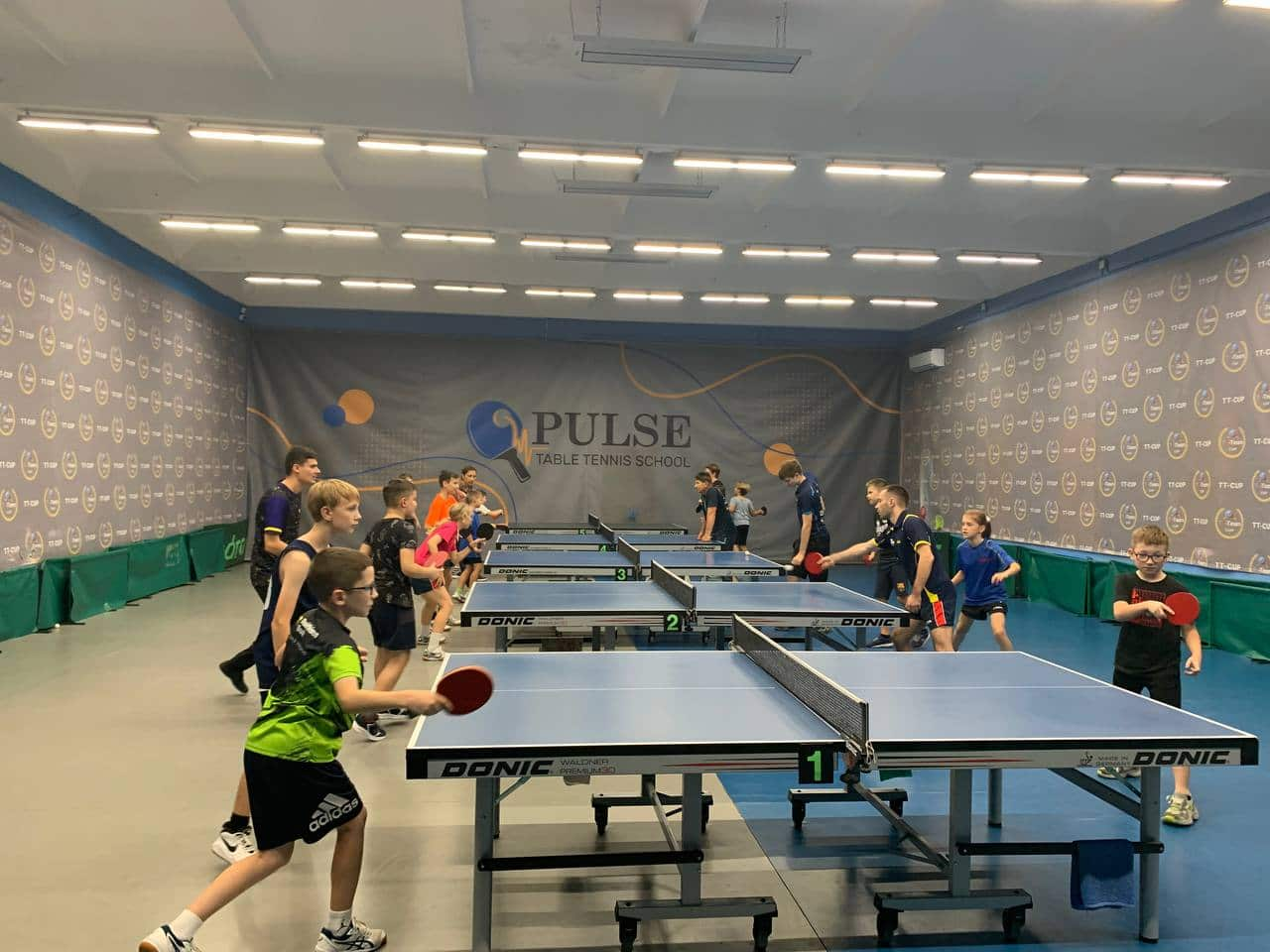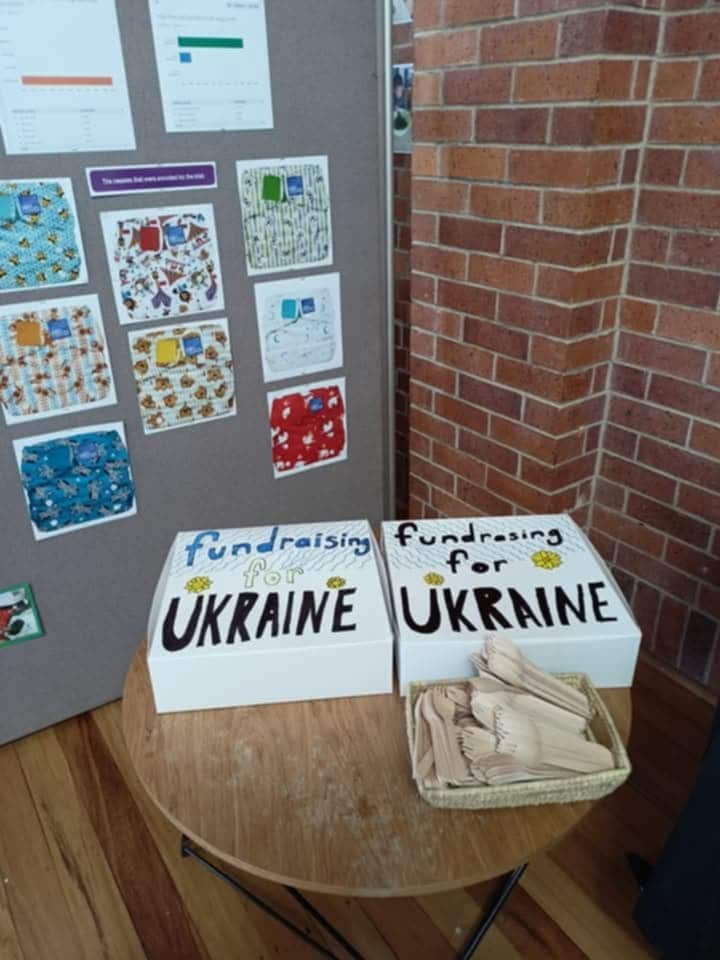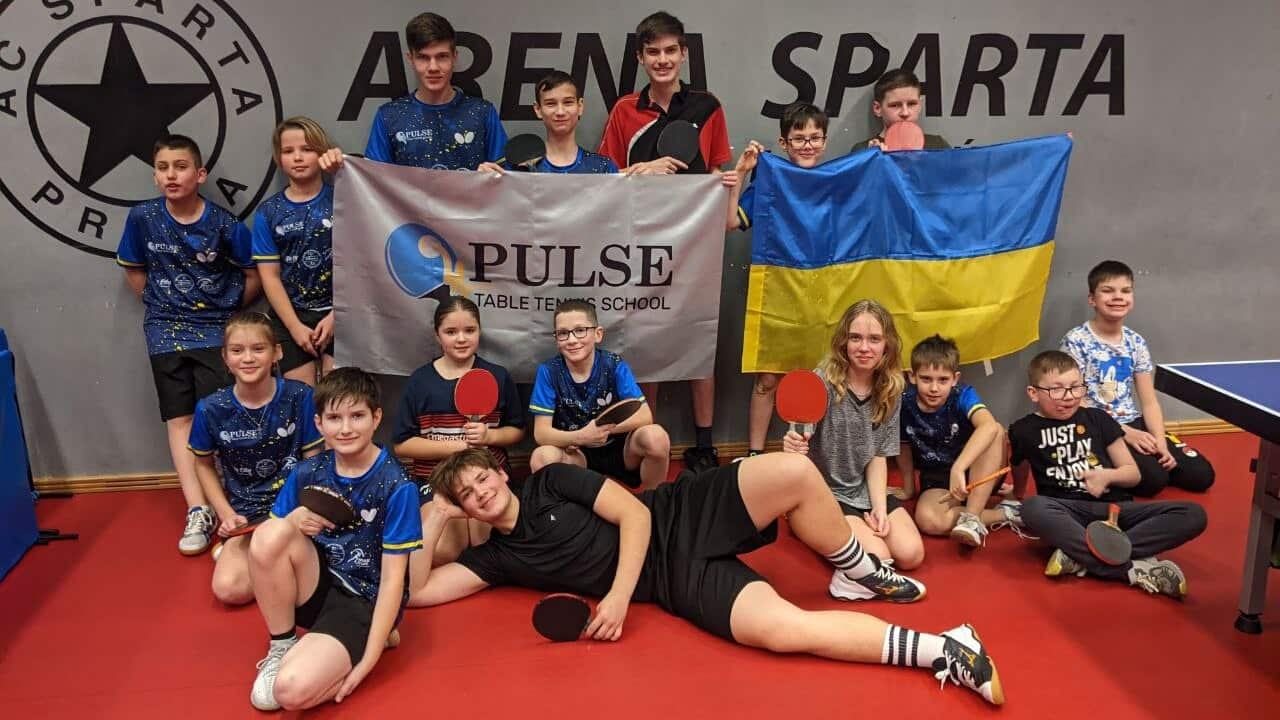Key Points
- According to UNICEF, 825,000 children in Ukraine are in need of access to community-based mental health and psychosocial support.
- Kyiv-based table tennis school Pulse has helped hundreds of children, forcefully displaced from the city of Mariupol, currently occupied by Russia.
- According to Home Affairs, 2,145 forcefully displaced Ukrainians have been offered a pathway to permanent residency in Australia.
Iryna Yatsenko, who is based in Kyiv, recalls that at the beginning of Russia’s full-scale invasion of Ukraine in 2022, most of the volunteer efforts were about providing basic humanitarian support.
“At that time, the help targeting children was mostly around food … Nothing else was done, either in Kyiv or elsewhere.
“People were still in shock.”
As the war enters its fourth year on 24 February, almost 6.8 million Ukrainians have fled the country, while two million children are in need of humanitarian support, the United Nations High Commissioner for Refugees (UNHCR) says.
Helping displaced children
In spring 2022, Yatsenko was approached by her friend and Ukrainian para athlete Vadym Kubov. He wanted to open a table tennis school in Kyiv for children forcefully displaced from Mariupol in southeastern Ukraine.
Before Russia’s full-scale invasion, two schools in Mariupol had table tennis classes, supported by the table tennis federation of the city and its president Yevhenii Sazonov.
After the invasion, Kubov and Sazonov evacuated to Kyiv from Bucha and Mariupol, respectively.
The two cities became internationally known in 2022 for the scale of alleged war crimes perpetrated by the Russian soldiers there. Mariupol still remains under Russian control.
Yatsenko said that there were several thousand Mariupol residents who fled their hometown for Kyiv.
“The idea was to recreate the school, like the one they had in Mariupol. [In Kyiv] children had nowhere to go, had no friends and were spending most of their time online.”
Kubov knew of a space that used to host table tennis classes before the invasion and was available for rent.
“Vadym said, the space is a bit run down, but we can fix it up and turn it into an evening school. Children will come there, play table tennis and get psychological support.”
An ‘island of warmth and love’
Table tennis school Pulse has been running for over two and a half years now.
Gradually it has grown into a community hub, not only hosting classes, but also organising excursions, outreach experiences with famous athletes and vacation care programs.
Kyiv-based Pulse supports children through sports classes, outreach and vacation care programs. Credit: Supplied / Pulse table tennis school
Yatsenko said that when the school started, there was no heating or generator for electricity in case of blackouts.
“There were heavy shelling [of Kyiv] on New Year’s Eve in 2022,” she said.
There were blackouts and we hosted our classes with torch lights on the phones. The kids didn’t want to leave.
Iryna Yatsenko from table tennis school Pulse
Later the school volunteers were able to fundraise enough to buy a generator.
“Our space turned into a hub hosting the kids during the blackouts — with heating and electricity. It became an island of warmth and love.”
The school is run by volunteers and all the expenses are covered by donations.
Yatsenko recalled that at the start she was spending hours online looking for donors across the world. A Ukrainian community organisation in Basel, Switzerland was the first one to support Pulse.
Yatsenko eventually got connected to a New Zealand-based Ukrainian, who introduced her to some humanitarian activists in Australia.
“I told them — we don’t have heating, we don’t have money for rent, we don’t have anything, but we are determined to make it happen.
“They [Australian activists] believed in us. We are grateful to them and to everyone in general for simply believing in us,” Yatsenko said.
‘Not only survived, but thriving’
Pulse has received support from people across dozens of countries, including Australians.
Irina Harrison, who lives in Perth, said she decided to try to fundraise for the school after talking to Yatsenko and learning about Pulse.
With another Australian, Adelaide-based Slava Grigoriev, they set up a GoFundMe page.
“We set a goal to raise $10,000. As of today, we have raised about $7,000, with a little over 100 donations,” Harrison told SBS Russian.
The fundraiser for the Kyiv-based school has been supported by donations from across Australia and New Zealand, with language schools and daycare centres participating in the effort. Credit: Nadia Dikareva
The effort was supported by donations from across Australia and New Zealand. A Sydney-based language school donated all of the proceedings from its Christmas concert in December 2022, while an Auckland-based daycare hosted a bake sale with some funds going to Pulse.
Harrison is happy to see that the school has not only survived but is thriving.
“The first donations were for simply to try to somehow warm up, to buy a generator, to paint the walls, to install doors. And the school not only survived, it is thriving. It has now turned into a real rehabilitation centre.”
‘Children without the war’
The effort of Pulse volunteers continues as Russian invasion of Ukraine enters its fourth year. Yatsenko said bombing often disrupts the classes.
She said that the building was damaged during shelling, with smashed windows and partially broken wall plaster.
“This has happened more than once. That is, even now the roof is leaking, and we have to place buckets there.”
Yatsenko explained that excursions are the most dangerous, as the children have to quickly evacuate to nearby shelters or at the underground metro stations.
“Once the alarm did not go off at the right time. The rocket and the explosions came first, and only then came the alarm.
“We were like — probably, it’s MIG as usual [Mikoyan MiG-31 is a supersonic interceptor aircraft that uses the R-33 air-to-air missile].
“Every Ukrainian child can figure it out now — ah, that’s MIG. Everyone is used to the sound of it and can understand its trajectory.
“But that time we didn’t expect it, there were some crazy explosions.”
At the start of 2025, volunteers were able to organise a trip for some of the kids abroad to Prague, Czech Republic.
“We had an idea to give the children a week of vacation without war. And it worked,” said Yatsenko.
“They were in shock. They walked around for the first three days wondering — how is it that there are no sirens?
“All the nerves and this preparation were worth it because the kids were just having fun. They were just enjoying themselves. Children without the war — this is beautiful.”
Ukrainians fleeing the war and coming to Australia
In the three years of the war, the UN has verified 2,472 child casualties. It says that children in frontline areas are forced to spend up to 5,000 hours a year sheltering underground.
The UN agency for children’s fund (UNICEF) says 825 000 children in Ukraine are in need of access to community-based mental health and psychosocial support.
As the war rages on in Ukraine, the Australian government has offered a pathway to permanency to forcefully displaced Ukrainians.
As of late January 2025, there were 8,298 Ukrainian nationals in Australia, including 3,219 Temporary (Humanitarian Concern) visa holders and 447 Resolution of Status visa holders.
Offers of permanent stay have been sent to 2,145 of them.
In a statement to SBS Russian, a Home Affairs spokesperson said: “The Australian Government remains committed to supporting Ukrainians and their family members who are in Australia because of the war, and we continue to monitor the situation in Ukraine closely.”


